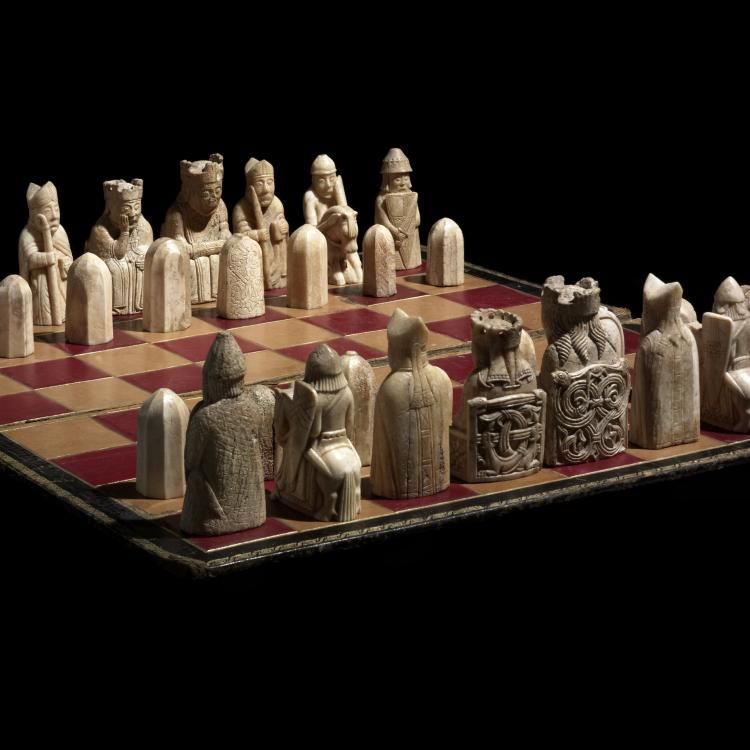Contact details
Email: BEP@britishmuseum.org
Phone: +44 (0)20 7323 8629
Department of Britain, Europe and Prehistory
The British Museum
London
WC1B 3DG
The Department of Britain, Europe and Prehistory is responsible for collections that cover a vast expanse of time.
From the earliest human tools in Africa and Asia two million years ago to the art and archaeology of Europe from the earliest times to the present day, including the history of Britain under Roman occupation.
Curators in the department are experts on a wide variety of subjects, from areas including:
- Palaeolithic Archaeology (Old Stone Age) in Europe and around the world.
- Neolithic (New Stone Age), Bronze Age and Iron Age Archaeology in Europe and Roman Britain.
- Medieval, Renaissance and Modern European culture, including 20th century design from North America.
The department currently has 11 galleries displaying highlights from its collections. As well as exhibitions, we're involved in a wide range of research, excavations and publications. We also actively communicate with the public through radio, television and digital channels.
Staff are engaged in helping members of the public with enquiries, the identification of objects and scholarly research. An important part of the department's work is connected with finds of Treasure from England and supporting the work of the Portable Antiquities Scheme.
History of the collection
The Department of Britain, Europe and Prehistory was created in 2003. The collection includes some of the earliest objects made by humans two million years ago, with Palaeolithic and Mesolithic material (Old and Middle Stone Age) from Africa, South Asia and Western Europe. The Upper Palaeolithic collection from Europe is one of the most important in the world.
The collection also includes some of the best known prehistoric and Roman material found in Britain, with the Roman collection reflecting all aspects of life in the province of Britannia from the first to the early fifth centuries AD. The collection continues chronologically through medieval, Renaissance and modern Europe.
History of the collection
Development
Generous benefactors, archaeological activity and a succession of skilful keepers have enriched the collection during its history. The collection of Sir Hans Sloane (1660–1753), scientist, physician, and antiquarian, acquired by the nation after his death, gave rise to the British Museum. Sir Augustus Wollaston Franks (1826–1897), who joined the Museum in 1851, used his private fortune to acquire a vast number of objects, including British and European prehistoric material.
In 1898 the Waddesdon Bequest, a collection of around 300 precious objects donated by the Rothschild family came to the Museum during the keepership of Sir Charles Hercules Read.
History of the collection
Acquisitions and holdings
The character of the department and its collecting policy has been shaped by its acquisitions and benefactions. These include palaeolithic collections from Sturge, Christy and Lartet, the Greenwell and Morel collections from later prehistoric sites in Britain and Europe and Romano-British material from the Charles Roach Smith and Gibbs collections.
The comprehensive horological collection (the art or science of making timepieces, or of measuring time) springs principally from the acquisition of collections made by Charles Fellowes (1874), Octavius Morgan (1888) and Courtney Adrian Ilbert (1958).
In 1978 the gift of 1,200 pieces of jewellery from the private collector Mrs Anne Hull Grundy included significant 20th-century pieces and formed the basis of a collecting policy which, since 1979, has seen the department actively extending its applied arts collection into the 20th century.
Staff
- Nick Ashton – Curator of Palaeolithic and Mesolithic collections
- Sue Brunning – Curator, Early Medieval European Collections
- Jill Cook – Acting Keeper, Department of Britain, Europe & Prehistory
- Oliver Cooke – Curator: Horology
- Lloyd de Beer – Ferguson Curator of Medieval Britain and Europe
- Julia Farley – Curator: European Iron Age & Roman Conquest Period
- Richard Hobbs – The Weston Curator of Roman Britain
- Rachel King – Curator, Renaissance Europe and the Waddesdon Bequest
- Beverley Nenk – Curator, late Medieval Europe & Judaica
- Elisabeth O'Connell – Assistant Keeper (Curator), Byzantine World
- Judy Rudoe – Curator, 19th and 20th-century collections; jewellery, silver, engraved gems from 1660; textiles and other East European/Balkan collections from the former department of Ethnography
- Naomi Speakman – Curator, Medieval Collections
- Laura Turner – Curator: Horological Collections
- Neil Wilkin – Curator, early Europe
The work of the department is supported by a team of Collections Managers and administrative staff.
Research
Research by the Department is extremely diverse. Current projects range from publishing old collections acquired by the Museum over one hundred years ago, to studies of new categories of material. Research often involves staff from other departments in the Museum – in particular Conservation, Documentation and Science – as well as partners in other academic institutions in the UK and abroad.
The Department is also involved in archaeological excavations, which range from the investigation of sites where treasure has been discovered to places where there is evidence of the earliest human occupation of Britain.
See below for a list of some of the current projects undertaken by staff in the Department.
Research projects
Pathways to Ancient Britain (2012–2022) – Staff: Nick Ashton
Barnham Excavations (2013–2020) – Staff: Nick Ashton
The Anglo-Saxon cemetery at St Peter's Tip, Broadstairs, Kent – Staff: Sue Brunning
The archive and history of the Sutton Hoo displays at the British Museum – Staff: Sue Brunning
Snettisham Iron Age hoards: technology and analysis – Staff: Julia Farley
The Micropasts Project – Staff: Neil Wilkin
The Grave Goods Project (with the University of Reading and the University of Manchester) – Staff: Neil Wilkin





